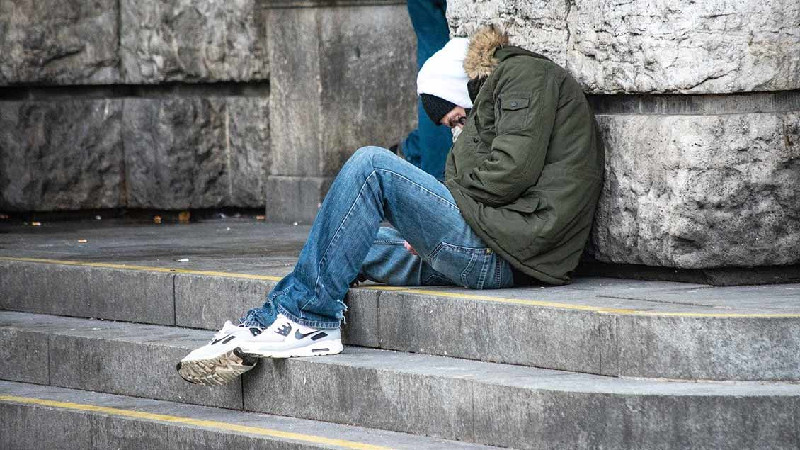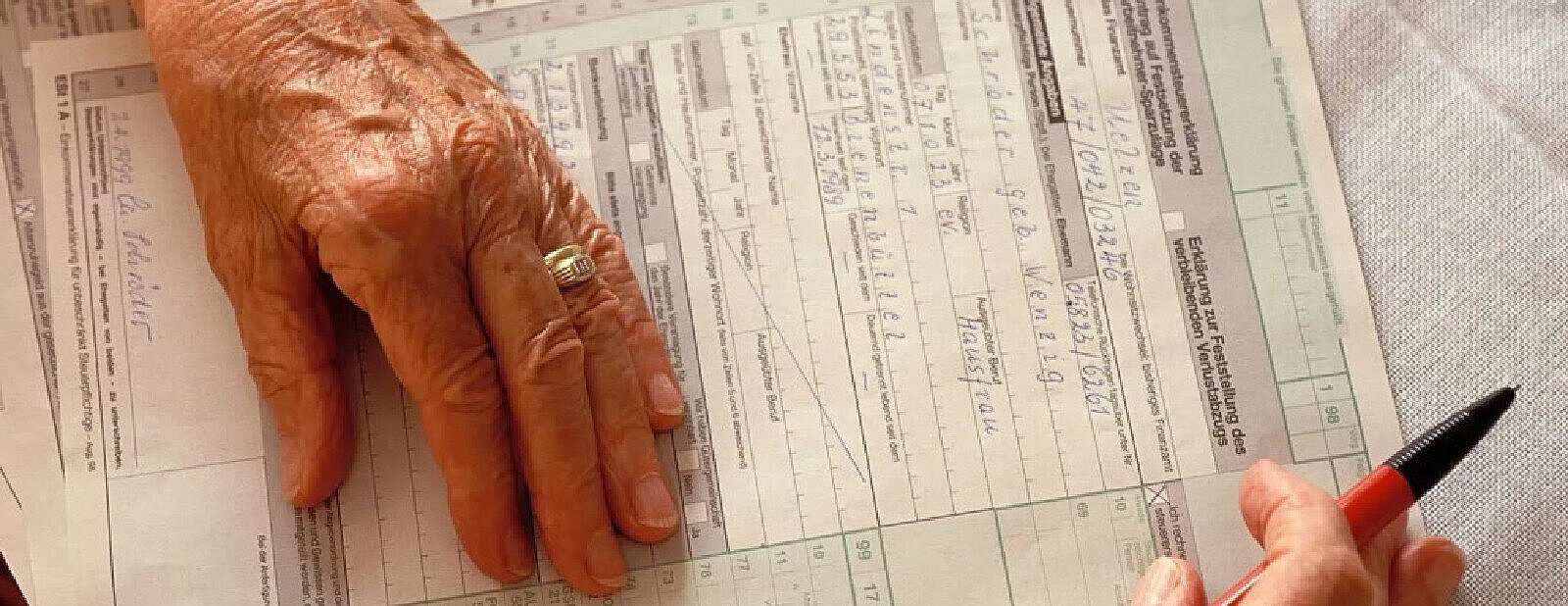
The Frankfurt bridges are a showcase of innovations, not only in terms of technology, humane architecture, sustainability, etc., but also in all areas of “inclusion and human development”: This also applies to the labor law situation on the bridges
On the Frankfurter Brücken, people who are not normally able to work or for whom it is not worth working at all can (re)enter the working world: (1) On the one hand, these are people who have fallen out of a productive social context because they are drug addicts, homeless or otherwise impaired. These people can come to certain collection points every day where the gardening and cleaning teams for the Frankfurt Bridges start, and can register for work for 2 to 5 hours in a very flexible manner in order to be paid directly according to the hours worked. (2) On the other hand, the Frankfurt Bridges offer pensioners in particular the opportunity to work up to 30 hours a week in operator kiosks, hobby pop-ups, as transport attendants, etc. for adequate hourly wages that are earned entirely gross for net. Further innovative contract rules can be implemented on the bridges as models, such as the right to further training in related professions or activities of up to one and a half days per week for all employees on the bridges. These innovative approaches are initially limited to the Frankfurt Bridges in order to be able to define framework guidelines after a certain learning phase that will enable transfer to the entire labor market in Germany.
Obdachlose und/oder Drogenabhängige brauchen nicht nur „housing first“ sondern auch „Würde durch Arbeit zuerst“
These people, who live on the streets and are mostly drug addicts, have two main problems that prevent their integration into the world of work:
- They are physically or mentally unable to carry out regular work; and
- they often do not have identification papers, or even if they did, they would not be able to cope with the bureaucratic paper effort required
In addition,they are often no longer able to perform mentally or physically any demanding work, regular or not. This means they are cut off from potential sources of income and are just as often excluded from the possibility of claiming social assistance. The only ways for them to get money are begging, theft, prostitution or other illegal activities, which do not require any identification papers, registration, tax declarations or other bureaucracy.
These people should therefore be given a completely unbureaucratic opportunity to get some work occasionally, without any regular obligation, and to get payment for it directly cash in return. On the Frankfurt Bridges, 1 million square meters of green space have to be looked after, hundreds of staircases and elevators have to be cleaned - not to mention the planting, maintenance and cleaning work along and under the bridges. Under the leadership of the gardening and cleaning teams on the bridges, one to two "assistants" can be taken along for each bridge professional, who then do simple jobs: a desperate drug addict, for example, or a homeless alcoholic cannot guarantee that they will be able to come to work regularly for a certain amount of time on certain days. But if they feel able, they can come along, be taken along and help, and then after two, three or even five hours they receive their wages in cash at one of the operator kiosks on the bridges. The hourly wage should correspond to the minimum wage in Germany , i.e. approximately 12.50 Euros (2023), minus 1.50 for temporary accident insurance tied to bridging work and 1 euro for drinks and snacks during work.
If a person who otherwise has no chance of earning 20 euros for two hours of work suddenly sees this opportunity to occasionally earn their own money, then this not only gives them back some of their dignity, but also represents a valid alternative to theft, prostitution or criminal activity. In order to fulfil this function, the pay must not be limited to 1.60 euros per hour or 7 euros per day, as is the case currently in Germany with “pocket money jobs” or “incentive payments”. The state allows such small amounts, only, out of panic about illegal work or tax evasion. But the limit of 5 hours of work per day means that taxable income does not accumulate anyway.
No application processes, no registration bureaucracy, flexible work whenever you are able to – this is the only way for people who have fallen out of society to find their way back into working life
So far, it has always been avoided to create such “islands of legal freedom” anywhere in Germany. The reasons:
- The insurance system is being undermined! But: If the "bridge hourly workers" cannot identify themselves, how can the insurance cover an accident? The answer: Bridge hourly workers are never alone, but are always accompanied by at least two bridge employees. The accident insurance cover is only valid for the duration of the activity and expires immediately as soon as payment is made at one of the operator's kiosks. Until then, in the event of an accident, it is clear who the person affected was - regardless of whether there is an official document with a photo of them or not.
- Undeclared work is encouraged! But: The state is missing out on nothing, absolutely nothing, if the bridge hourly workers, who can earn a maximum of 1000 euros a month anyway, do not pay taxes on this money. If they were registered for tax purposes, it would be established that they do not have to pay income tax anyway. And demanding such amounts as "social security contributions" or "pension contributions" from these people, who do not know whether they will freeze to death on the streets next winter or whether or when they might die of an overdose, is completely absurd, anyway. Just as with health insurance, even when these poor people would like to join the system, their contributions are to tiny, that there would be no payout of pension, social welfare etc. or cost coverage of these state payments, anyway, that could be financed from payment deductions as it is the case with regular income.
- Jobs are being taken away from other regularly working people. But: The amount of work that a homeless alcoholic or drug addict from the street can do is very limited. The Frankfurt Bridges assign these simple jobs for social reasons, and not to attract high achievers. Anyone who applies regularly to the Frankfurt Bridges operating company to do a full-time gardening or cleaning job earns significantly more and cannot be replaced by the poor bridge hourly workers.


Pensioners can earn additional income on the Frankfurt Bridges independently of their pension income, i.e. free of pension and social security contributions and with a tax progression that starts from zero
The next generations will continue to struggle with falling birth rates and a shortage of skilled workers. At the same time, advances in medicine and improved lifestyles often make it possible to remain healthy and fit well into old age. Even though people who reach retirement age are usually unable or unwilling to work a 40-hour week, it is pointless to condemn them to inactivity for twenty years or more or to tax them if they pursue another occupation in addition to their hard-earned pension. In addition, with each generation that retires, experience is lost. Pensioners can therefore work in all areas on the Frankfurt Bridges and earn extremely attractive additional income: For example, if a pensioner receives a pension of 1,600 euros and takes a part-time job on the bridges where he or she earns 1,500 euros per month, this person will only pays health and nursing insurance of around 1,800 euros per year and 540 euros per year in income tax on the additional annual income of 18,000 euros, while pension- or social security-contributions are completely waived.

The right to adequately paid work is an elementary component of human dignity – on the Frankfurt Bridges, innovative tests can be carried out in a special “legal space”
to see how weaker groups in society can be (re)integrated into the world of work in a fair and value-creating manner
In the society of the future, it makes no sense to exclude people from working life because they are unable to master application processes, official procedures or bureaucracy. Therefore, the "bridge hourly wage" on the Frankfurt Bridges is intended to enable people who are drug addicts, homeless or otherwise out of step with the times to return to the social division of labor. This not only means that they can earn money instead of becoming criminals, begging or prostitutes, but it also gives them back their dignity and the feeling of being part of society and contributing something.
The situation is similar with pensioners: someone who has worked hard all their life may only be able and willing to work three or four hours a day. But this work must be recognised with an appropriate salary, without their pension, for which one has already worked hard for years, being reduced by a higher tax rate or without the additional work being taxed so highly that it is not worth contributing one's expertise and energy to the social process.
The previous concern that privileging pensioners or allowing them to stay in the workforce could lead to unemployment among younger people has been eliminated by the sharp fall in birth rates in Germany. The fear that paying out cash in hand after a few hours of work could create a flourishing illegal employment market or provide jobs for people without a work permit is also no longer relevant: picking up rubbish on bridges for 10 euros an hour or lugging bags of potting soil is not work that anyone would be keen to do as an illegal job. Since such a short-term contract requires a very good knowledge of the German language in order to be able to communicate the tasks quickly and clearly, there is also no longer any danger of offering people without a work permit a secret way of earning money.
An innovative social approach is needed so that addicts or the homeless have a chance and so that old people are not left at home, isolated and feeling that they are no longer needed and will never be able to earn a little more money on their own, again. The Frankfurt Bridges are the ideal place to find solutions to these challenges and to put them into law.